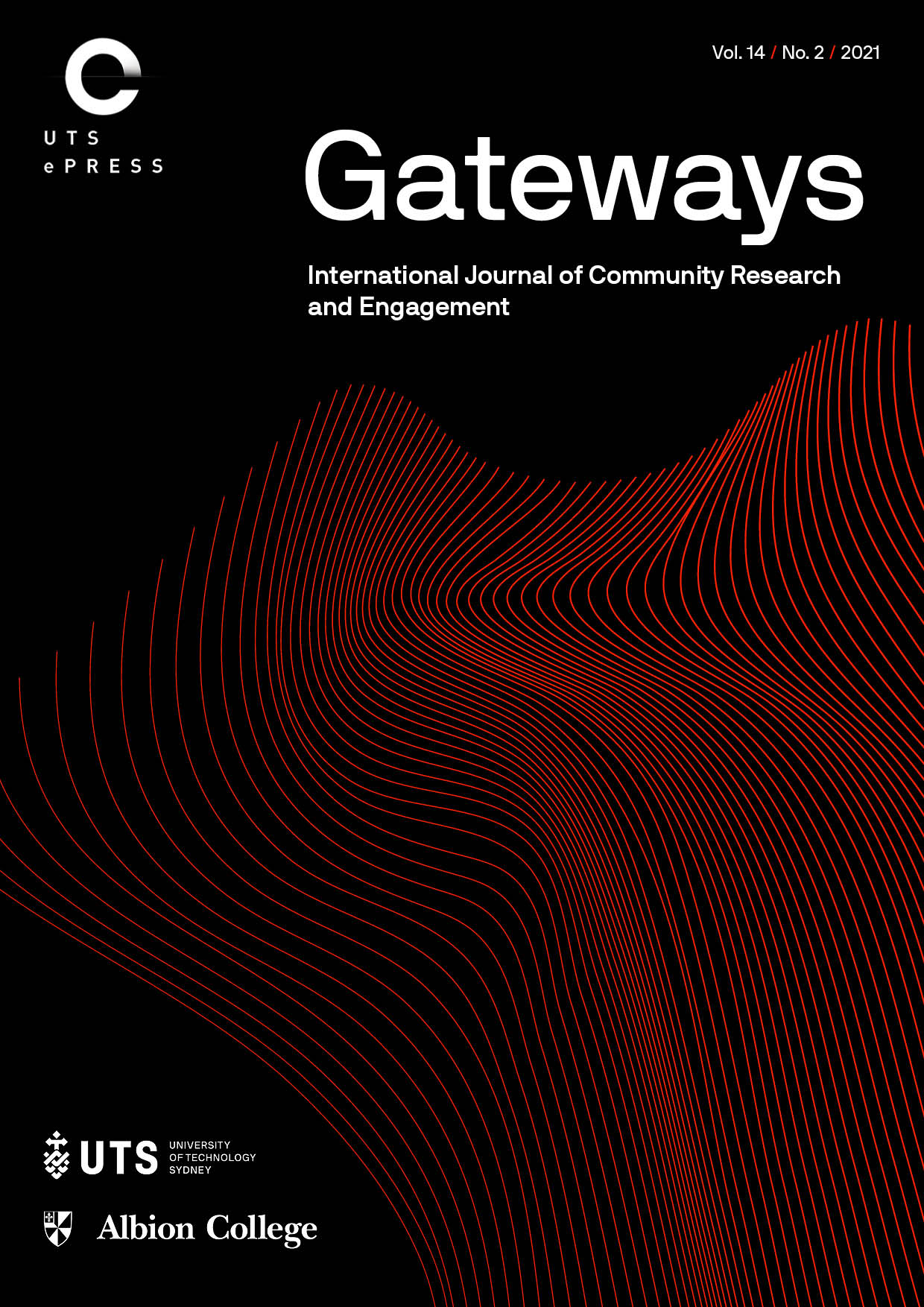Where’s the Love? Recentering Indigenous and Feminist Ethics of Care for Engaged Climate Research
Main Article Content
Abstract
Across a range of environmental change and crisis-driven research fields, including conservation, climate change and sustainability studies, the rhetoric of participatory and engaged research has become somewhat of a normative and mainstream mantra. Aligning with cautionary tales of participatory approaches, this article suggests that, all too often, ‘engaged’ research is taken up uncritically and without care, often by pragmatist, post-positivist and neoliberal action-oriented researchers, for whom the radical and relational practice of PAR is paradigmatically (ontologically, epistemologically and/or axiologically) incommensurable. Resisting depoliticised and rationalist interpretations of participatory methodologies, I strive in this article to hold space for the political, relational and ethical dimensions of collaboration and engagement.
Drawing on four years of collaborative ethnographic climate research in the Peruvian Andes with campesinos of Quilcayhuanca, I argue that resituating Participatory Action Research (PAR) within a feminist and indigenous ethics of care more fully aligns with the radical participatory praxis for culturally appropriate transformation and the liberation of oppressed groups. Thus, I do not abandon the participatory methodology altogether, rather this article provides a hopeful reworking of the participatory methodology and, specifically, participatory and community-based adaptation (CBA) practices, in terms of a feminist and indigenous praxis of love-care-response. In so doing, I strive to reclaim the more radical feminist and Indigenous elements – the affective, relational and political origins of collaborative knowledge production – and rethink research in the rupture of climate crises, relationally. The ethico-political frictions and tensions inherent in engaged climate scholarship are drawn into sharp relief, and deep reflection on the responsibility researchers take on when asking questions in spaces and times of ecological loss, trauma and grief is offered.
Article Details
Issue
Section
Authors who submit articles to this journal from 31st March 2014 for publication, agree to the following terms:
a) Authors retain copyright and grant the journal right of first publication with the work simultaneously licensed under a Creative Commons Attribution License that allows others to share and adapt the work with an acknowledgement of the work's authorship and initial publication in this journal.
b) Authors are able to enter into separate, additional contractual arrangements for the non-exclusive distribution of the journal's published version of the work (e.g., post it to an institutional repository or publish it in a book), with an acknowledgement of its initial publication in this journal.
c) Authors are permitted and encouraged to post their work online (e.g., in institutional repositories or on their website) prior to and during the submission process, as it can lead to productive exchanges, as well as earlier and greater citation of published work (See The Open Access Citation Advantage Service). Where authors include such a work in an institutional repository or on their website (ie. a copy of a work which has been published in a UTS ePRESS journal, or a pre-print or post-print version of that work), we request that they include a statement that acknowledges the UTS ePRESS publication including the name of the journal, the volume number and a web-link to the journal item.
d) Authors should be aware that the Creative Commons Attribution (CC-BY) License permits readers to share (copy and redistribute the work in any medium or format) and adapt (remix, transform, and build upon the work) for any purpose, even commercially, provided they also give appropriate credit to the work, provide a link to the license, and indicate if changes were made. They may do these things in any reasonable manner, but not in any way that suggests you or your publisher endorses their use.
For Volume 6 (2013) and before, the following copyright applied:
Articles published by UTSePress are protected by copyright which is retained by the authors who assert their moral rights. Authors control translation and reproduction rights to their works published by UTSePress. UTSePress publications are copyright and all rights are reserved worldwide. Downloads of specific portions of them are permitted for personal use only, not for commercial use or resale. Permissions to reprint or use any materials should be directed to UTSePress.
